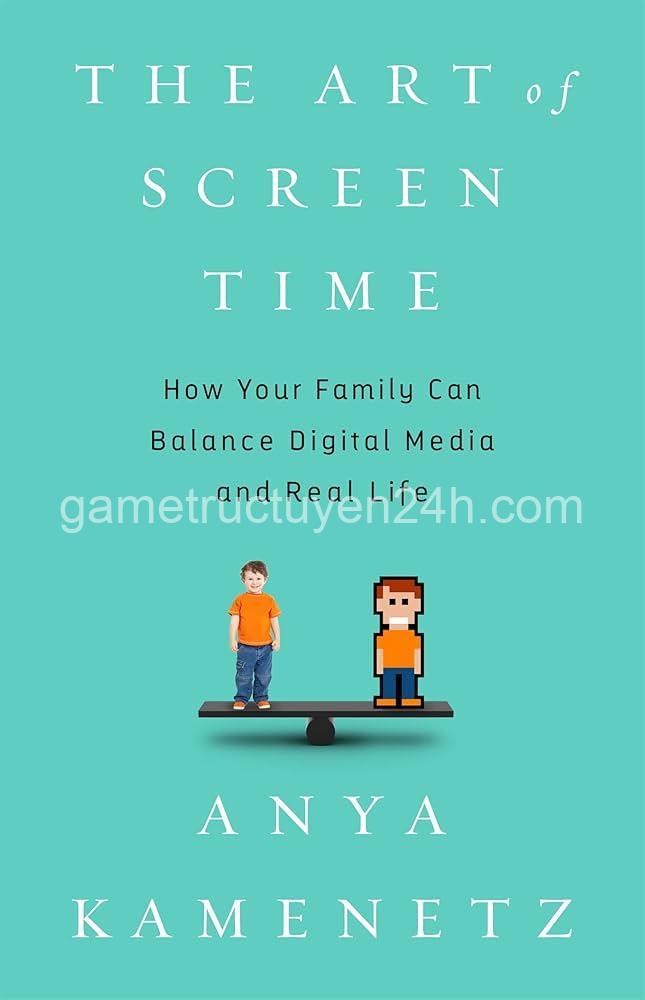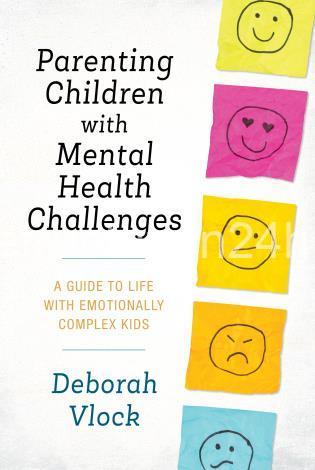Parenting Book Advice: Choosing the Right Strategies & Implementing Them. In today’s article, gametructuyen24h.com will explore with you in the most detailed and complete way. See now!
Choosing the Right Advice: Finding the Best Fit for Your Family
Finding the right parenting book can feel like a treasure hunt! You’re looking for that perfect guide that resonates with your values, aligns with your child’s needs, and offers practical solutions for your unique family dynamic. But amidst a sea of options, how do you choose the right advice and make it work for you?
First, define your parenting goals. What specific areas do you want to improve? Are you seeking guidance on sleep routines, managing challenging behaviors, fostering communication, or something else entirely? Once you have a clear goal in mind, you can start narrowing down your search.
Next, consider your child’s individual needs. Every child is unique, with their own personality, temperament, and developmental stage. Look for books that address the specific challenges and opportunities your child faces. For example, a book geared toward toddlers might offer different advice than one designed for teenagers.
Finally, seek recommendations from trusted sources. Your pediatrician, a therapist, or even other parents who have successfully navigated similar challenges can offer valuable insights and point you towards books that have truly made a difference.

Breaking Down the Book: Gradual Implementation for Success
Once you’ve chosen a book filled with valuable advice, it’s tempting to dive in headfirst and implement everything at once. But remember, change takes time and patience. Trying to implement too many new strategies simultaneously can lead to overwhelm and frustration.
The key is to start small. Choose one or two strategies that resonate with you and focus on implementing those consistently. As you get comfortable with those changes, you can gradually add more.
Flexibility is key. Keep in mind that what works for one child might not work for another. As you implement strategies, pay attention to how your child responds and adjust as needed. Embrace the trial-and-error process and don’t be afraid to adapt your approach.
Integrating Advice into Your Existing Routines
Now that you’ve identified a few key strategies, the next step is to weave them seamlessly into your family’s daily life. Think about your existing routines, such as mealtimes, bedtime, or playtime, and find ways to incorporate the new practices.
Visual reminders can be incredibly helpful. Use charts, checklists, or even visual cues to reinforce new behaviors. For example, a visual reminder chart for bedtime could include brushing teeth, putting on pajamas, reading a book, and saying goodnight.
Involving the whole family in the process makes the journey smoother. Talk openly about your goals and encourage everyone to participate in the implementation process. This fosters a sense of shared ownership and creates a supportive environment for change.
Cultivating a Positive Mindset for Lasting Change
Remember, parenting is a journey, not a destination. There will be bumps along the way, and setbacks are inevitable. But with patience, flexibility, and a positive mindset, you can make real progress.
Celebrate successes, no matter how small. Acknowledge your child’s efforts and progress with praise, rewards, and positive reinforcement. This helps to reinforce desired behaviors and encourages continued effort.
Focus on improvement, not perfection. Embrace the idea that parenting is a continuous learning process. There is no magic formula, and every family is unique. Focus on making gradual improvements and celebrating those milestones along the way.
FAQs about Implementing Parenting Book Advice
How do I know which parenting book is right for my family?
The best parenting book for you will align with your values, parenting style, and your child’s specific needs. Consider your child’s age, temperament, and developmental stage. Seek recommendations from trusted sources, such as your pediatrician or other parents.
What if the advice in the book doesn’t seem to work for my child?
Every child is different, so it’s important to be flexible and adjust your approach as needed. Observe your child’s response and make adjustments based on what seems to work best. Remember, it’s a journey, not a destination!
How can I make sure I’m implementing the advice consistently?
Consistency is key! Start with one or two strategies at a time and focus on implementing them consistently. Create visual reminders, involve the whole family, and find ways to integrate the advice into your existing routines.
What if I feel overwhelmed trying to implement all this advice?
Don’t feel pressured to do everything at once! Take it one step at a time. Choose one or two strategies, focus on implementing them consistently, and gradually add more as you feel comfortable.
Is it okay to combine advice from different parenting books?
Absolutely! It’s perfectly acceptable to take inspiration from multiple books and create your own unique approach based on what works best for your family. Think of it as a customized parenting toolkit.
Conclusion
Implementing parenting book advice into your daily routines requires patience, flexibility, and a positive mindset. By choosing the right advice, breaking down the process into manageable steps, and integrating it into your family’s routines, you can create a more harmonious and fulfilling home life.
Remember, every child is unique and there is no one-size-fits-all approach. Explore different strategies, adjust as needed, and celebrate every milestone along the way.
For more valuable insights on parenting, visit gametructuyen24h.com and join the conversation! Leave a comment below with your favorite parenting tips or share your experiences with implementing parenting book advice.
[Author Name]: Joseph Robert Johnson [Website]: https://gametructuyen24h.com [EAVs]:- Book – Title – “The Whole-Brain Child”
- Book – Author – “Daniel J. Siegel”
- Book – Topic – Child development
- Routine – Type – Bedtime routine
- Routine – Time – 8:00 PM
- Routine – Activity – Story time
- Behavior – Type – Tantrums
- Behavior – Cause – Frustration
- Behavior – Solution – Time-outs
- Discipline – Type – Positive reinforcement
- Discipline – Method – Reward chart
- Child – Age – 3 years old
- Child – Personality – Energetic
- Family – Size – 4 members
- Family – Structure – Nuclear family
- Time Management – Strategy – Time blocking
- Time Management – Goal – Reduce screen time
- Communication – Skill – Active listening
- Communication – Tool – Family meetings
- Goal – Type – Improved communication
- Goal – Timeline – 3 months
- Goal – Outcome – Increased family connection
- Book (Author) – Written by – Author (Name)
- Book (Topic) – Covers – Topic (Subject)
- Routine (Activity) – Includes – Activity (Name)
- Behavior (Type) – Manifested in – Child (Name)
- Discipline (Method) – Applied to – Behavior (Type)
- Child (Age) – Corresponds to – Developmental stage (Stage)
- Family (Structure) – Influences – Parenting style (Style)
- Time Management (Goal) – Aimed at – Behavior (Change)
- Communication (Skill) – Enhances – Family relationship (Relationship)
- Goal (Type) – Related to – Parenting book (Book)
- Goal (Outcome) – Achieved through – Strategy (Method)
- Routine (Time) – Aligns with – Child’s schedule (Schedule)
- Behavior (Cause) – Triggers – Behavior (Type)
- Discipline (Type) – Based on – Child psychology (Theory)
- Child (Personality) – Impacts – Parenting approach (Approach)
- Family (Size) – Determines – Family dynamics (Dynamics)
- Time Management (Strategy) – Facilitates – Goal achievement (Achievement)
- Communication (Tool) – Promotes – Open communication (Communication)
- Goal (Timeline) – Sets – Target for progress (Progress)
- Goal (Outcome) – Measured by – Metrics (Metrics)
- (Book, is about, Child development)
- (Routine, includes, Bedtime story)
- (Behavior, is caused by, Frustration)
- (Discipline, uses, Positive reinforcement)
- (Child, is, 3 years old)
- (Family, has, 4 members)
- (Time Management, aims to, Reduce screen time)
- (Communication, requires, Active listening)
- (Goal, is to, Improve communication)
- (Goal, will be achieved in, 3 months)
- (Goal, will result in, Increased family connection)
- (Routine, is implemented at, 8:00 PM)
- (Behavior, is manifested in, Tantrums)
- (Discipline, is applied to, Tantrums)
- (Child, has, Energetic personality)
- (Family, has a, Nuclear family structure)
- (Time Management, is facilitated by, Time blocking)
- (Communication, is promoted by, Family meetings)
- (Goal, is related to, The Whole-Brain Child)
- (Goal, is measured by, Family happiness scores)





